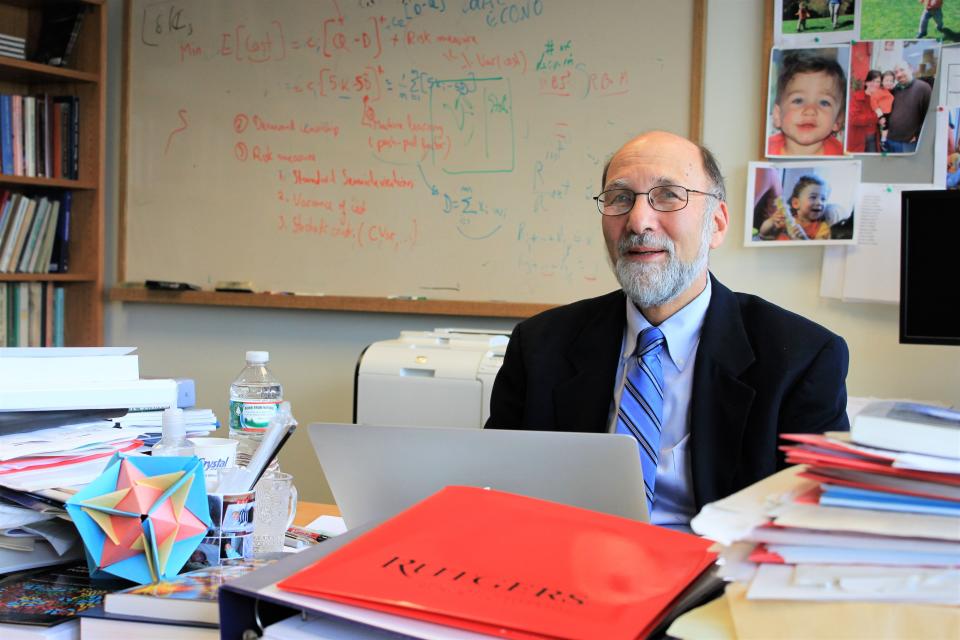Rutgers' students, faculty will study how to defend soft targets from terrorist attacks
Rutgers University will join a group of nine other universities to study how best to fortify "soft targets" such as hospitals, malls, schools and stadiums against criminal and terrorist assaults.
The consortium will be funded through a series of U.S. Department of Homeland Security grants over the next decade, according to Rutgers.
Part of the mission will be investigating how to best use technology to protect crowded public spaces, said Fred Roberts, a Rutgers mathematics professor who will oversee the university's contributions.
"The ultimate goal is to make these places safer," Roberts said in an interview. "How you do that is the challenge — the adversaries, the criminals, the terrorists are getting smarter every day... you have to out-think the bad guys."
The consortium will be called the Center of Excellence for Engineering Secure Environments from Targeted Attacks, and will be headquartered at Northeastern University in Boston, Roberts said. It will pull together the nation's best to help the federal government grow its counterterrorism abilities.

“Researching and developing science and technology solutions to combat emerging threats is a top priority,” U.S. Secretary of Homeland Security Alejandro N. Mayorkas said in a statement. “The new Center of Excellence will provide improved access to high-quality, university-led research and education resources for the department and the broader homeland security enterprise, while at the same time training our nation’s next generation of homeland security leaders.”
Opinion: TikTok threats at pandemic-weary schools - parents need a break
Safety: NJ drunk driving crackdown is underway. Here are the North Jersey towns that got grants
The department has granted the center $3.6 million for its first year, the statement said.
Rutgers investigators will work on real-time threat detection and mitigation, as well as advanced sensing and risk-assessment prediction and deterrence, among other things. Roberts said they will use the New Brunswick campus as a "living lab," and experiment with crowd management and security procedures on the university bus system and in its dining halls, movie theater and concert venues.
The solutions they develop will be used to protect countless soft targets throughout the country, he added.
The university will rely on the efforts of dozens of students and faculty members during the endeavor, he said. They’ll likely hail from a variety of backgrounds — solving the problems homeland security presents often benefits from a wide breadth of perspectives.
“You want engineers and computer scientists, but you also want lawyers and public health people,” Roberts said. “You just don’t know [who you’ll need].”
Rutgers will also co-lead the education and workforce development program, which administrators say will help prepare the next generation of homeland security professionals.
“It’s a wonderful opportunity for our students to get exposed to practical problems,” Roberts said.
The university isn’t new to partnerships with the federal government.
Roberts said Rutgers has for many years run its own federally funded center of excellence that uses advanced data analysis to find solutions to a variety of security puzzles, such as how to better defend mass transit hubs.
This has led to several successes, such as the creation of a set of best practices for stadium security that is now used by every professional sports league in the country.
Steve Janoski covers law enforcement for NorthJersey.com. For unlimited access to the most important news about those who safeguard your local community, please subscribe or activate your digital account today.
Email: janoski@northjersey.com
Twitter: @stevejanoski
This article originally appeared on NorthJersey.com: Rutgers faculty will study how to defend soft targets from attack
